
# All-season tyres
The ultimate tyre all-rounder: the all-season tyre
Enjoy every season with all-season tyres
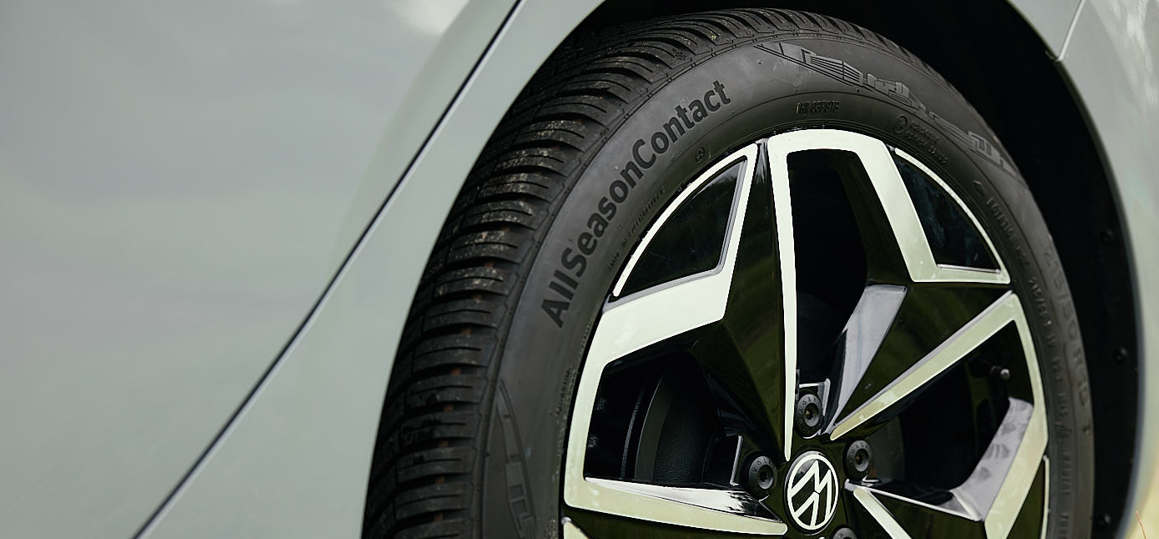
A tyre for all seasons, Continental’s all-season range makes no compromise in milder parts of the world. Rather it combines the best of both summer and winter tyres for the perfect all-rounder.
In some countries, winter means freezing cold temperatures, heavy snow and icicles on every ledge. But in other places, winter can mean only cold weather, rain and an occasional dusting of snow. The same is true in summer: in some countries the heat can reach scorching temperatures of 40°C; while in other locations, the seasonal high will only ever reach about 28°C.
If you live in a moderate climate, you can enjoy a smooth ride in every season with all-season tyres from Continental. Read on to discover more!
Be in control, with a tyre that knows no season
All-season tyres could be the alternative for you because...
- They combine the best of summer and winter tyres into one all-season tyre that performs well in both warm and cold, wet and dry weather conditions
- All-season tyres mean drivers can use the same set of tyres all year round, with no seasonal changes required
- Your local climate is key. All-season tyres are developed to perform well in milder climates
- Regular checking and maintenance of your tyres is the way to ensure optimal performance and safety
Find out more about all-season tyres below
We´ll keep you safe no matter the season
How all-season tyres work
Continental all-season tyres blend the technologies of summer and winter tyres into all-season tyres that give superb performance in all but the most extreme weather conditions. Read on to learn what makes all-season tyres different from winter and summer tyres and find out if they are right for you and your motoring needs.

All-season tyre buying guide
All-season tyres can give motorists the best of both worlds: a tread depth suitable for most weather conditions, an impressive tread life and freedom from changing and storing your summer and winter tyres each year. However, seasonal tyres can still be the best choice for you, and in some cases increase fuel efficiency.
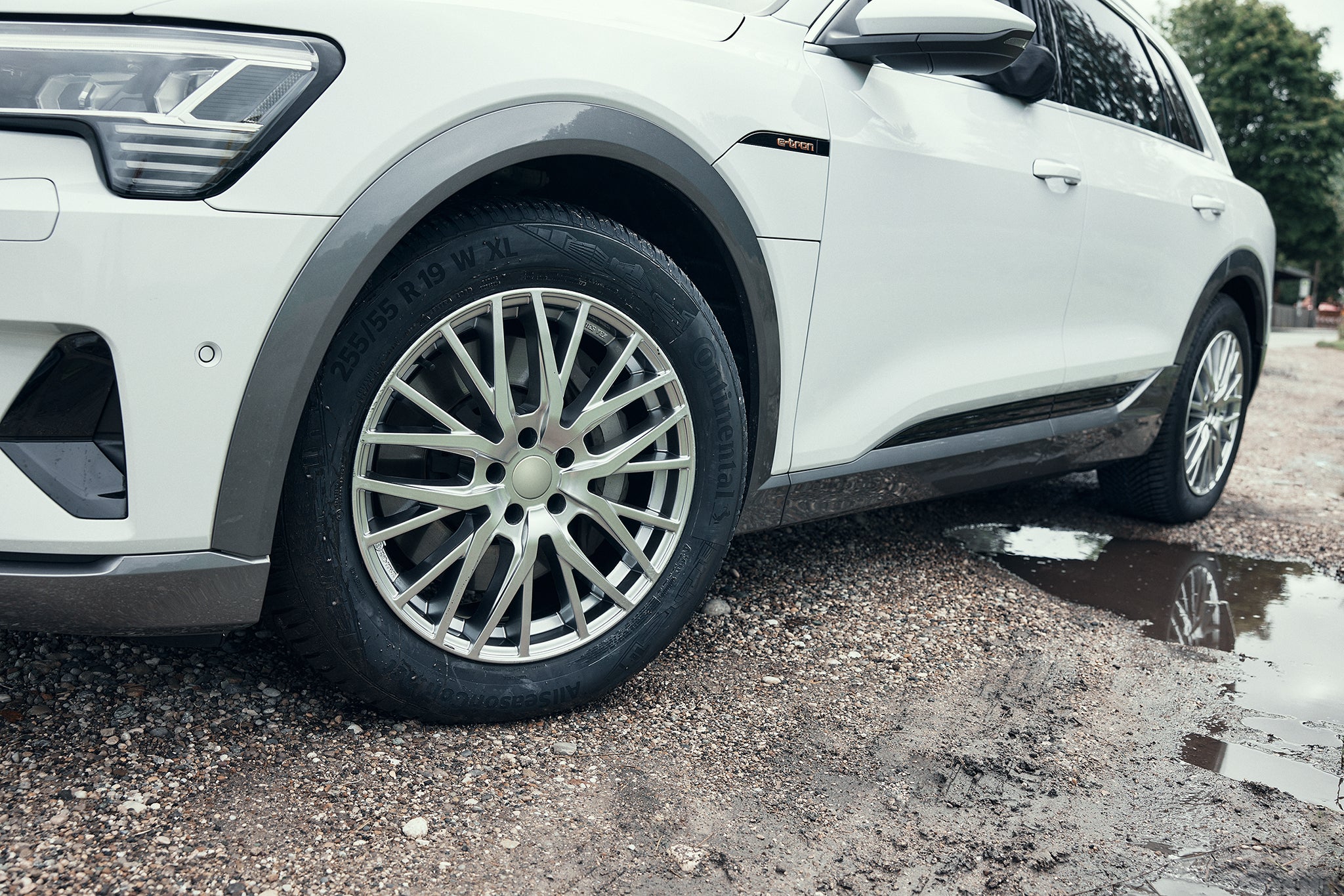
Find out if all-season tyres are right for you, discover which all-season tyre is best for passenger cars, EVs, SUVs or trucks, and learn to recognise the all-weather symbol on your sidewall.
All-season tyres for motorhomes
All-season tyres can be a great choice for your RV: all-round safety, reliable traction in a wide range of weather conditions and superb handling and performance. All-season RV tyres have been developed to perform all year round in moderate climates. Read on to leran why all-season tyres can be the most practical choice for motorhomes.

Tread depth, tyre laws and when to change all-season tyres
Whether you are thinking of purchasing, or already are the owner of all-season tyres, there are some important things to know about them when it comes to safety, tread depth and legal requirements. This article explores each of these factors so you can be well informed when it comes to owning all-season tyres.
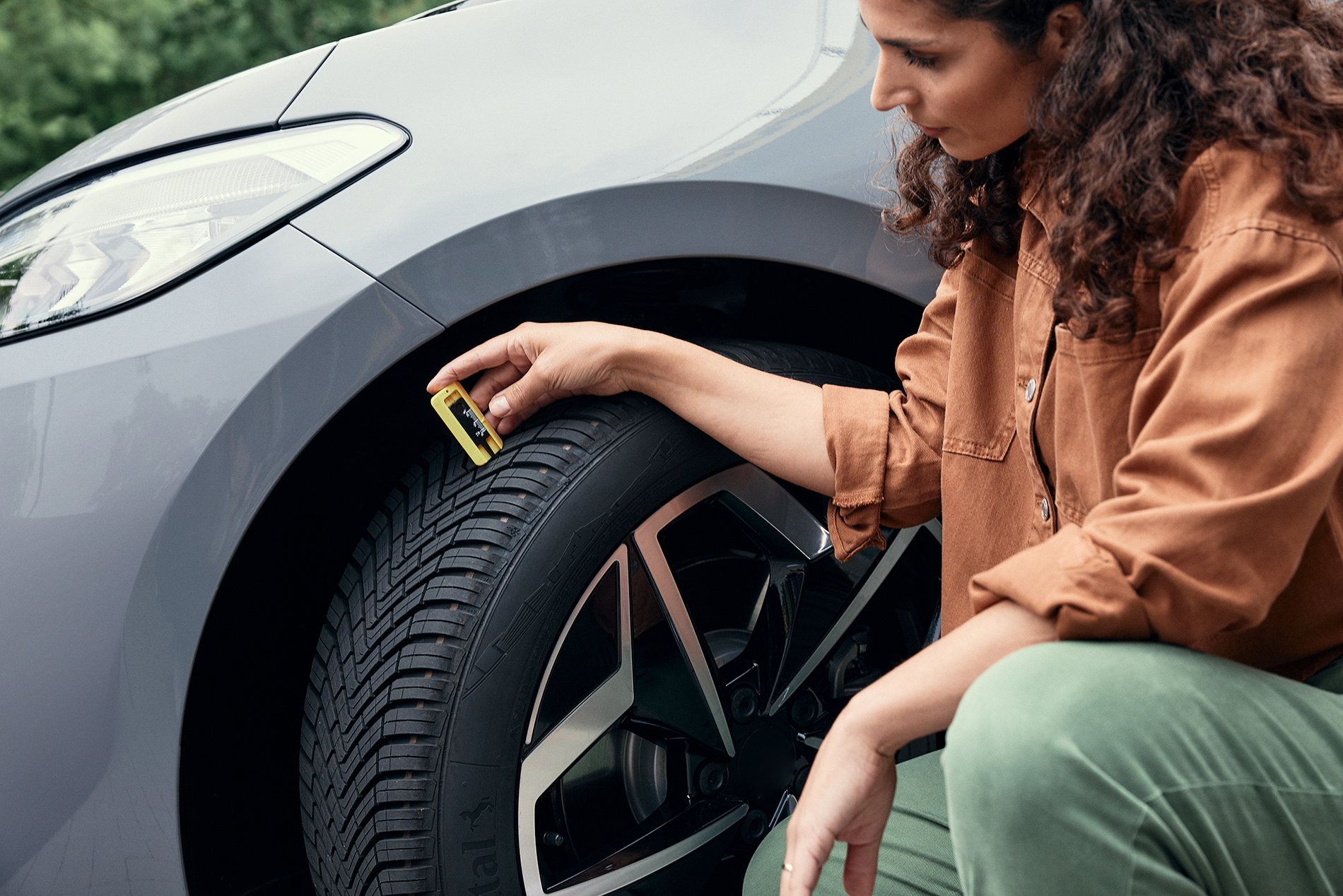
Test results for all-season tyres
At Continental, we could talk all day about the quality of our all-season tyres. But you don’t need to take our word for it! Tyre reviews and impartial tests affirm the performance and reliability of our all-season tyres.
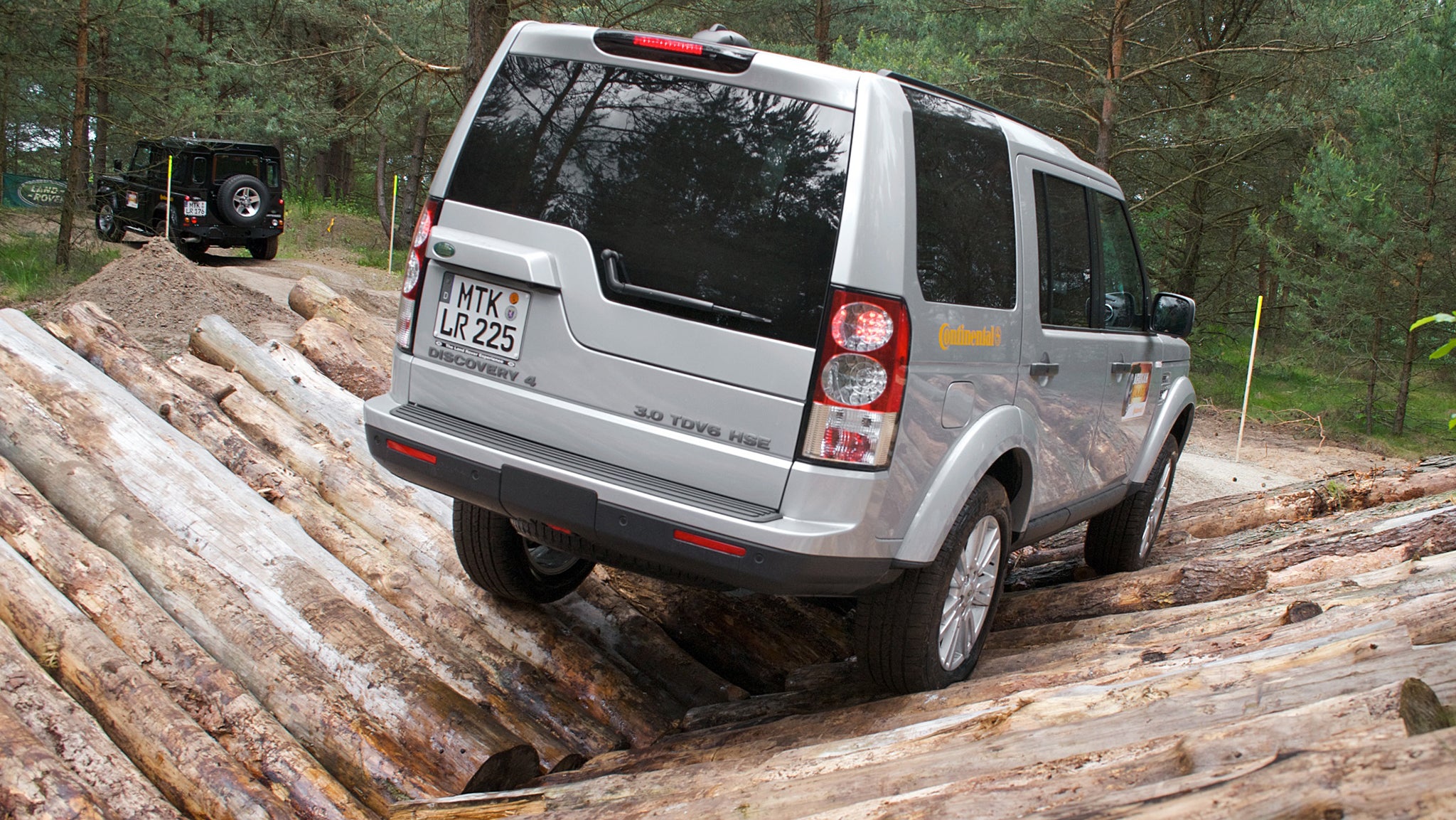
If you live in a moderate climate and are on the hunt for all-season tyres for your car, RV, van or SUV, take a look at how independent tire reviews, ratings and tests have assessed Continental’s all-season tyre range.
Aquaplaning with all-season tyres
Even if you only ever drive in mild winter weather where snow and ice are not a worry, you still need to be aware of slippery roads. Why?
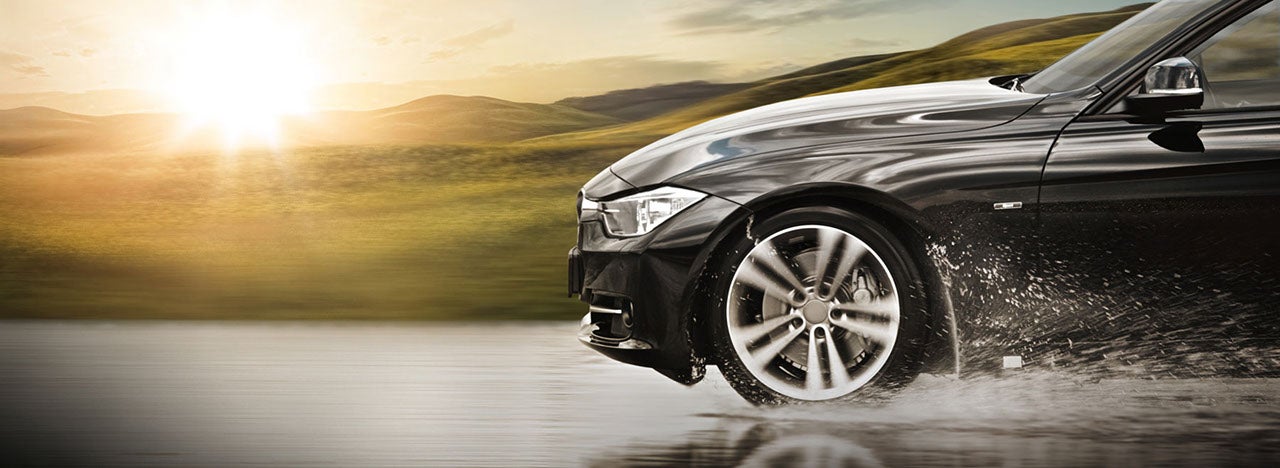
It’s not the snow and ice that are slippery, it’s the thin layer of water that builds up between the road surface and the tyre of a car. It can happen in any season, but the risk is higher in wet winter weather. Find out more about the phenomenon of aquaplaning or hydroplaning, how to avoid it and how to react if it happens.
Driving in winter rain
Winter means snow? Sure, but in most places, winter also means rain. Lots of rain. As with all winter driving conditions, driving in the rain is a lot more challenging than driving on dry roads in the sunshine. Wet roads pose a greater risk to drivers and demand more of your car, its safety features and, in particular, its tyres. Find out how to navigate a heavy shower safely.

Related content
-
 2022/09/07Test results for all-season tyresYou don’t need to take our word for how well our all-season tyres perform. Simply check out our ratings and reviews!Read more
2022/09/07Test results for all-season tyresYou don’t need to take our word for how well our all-season tyres perform. Simply check out our ratings and reviews!Read more -
 2022/09/07All-season tyresRead more
2022/09/07All-season tyresRead more -
 2022/09/07All-season tyres for motorhomesWith the popularity of motorhomes increasing, it’s time to consider the best tyres for your RV.Read more
2022/09/07All-season tyres for motorhomesWith the popularity of motorhomes increasing, it’s time to consider the best tyres for your RV.Read more